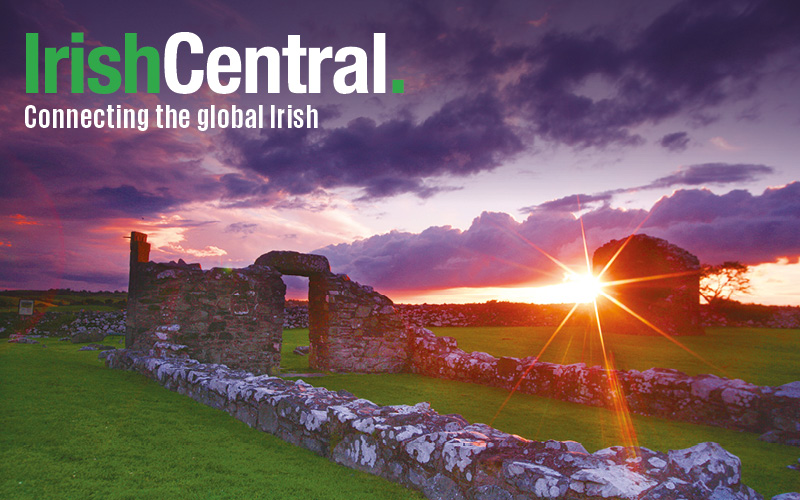Declan Flynn's Dublin murder and Ireland's shameful reaction - the terrifying message we sent to gay men and women.
Declan Flynn. It's such an Irish name, isn't it? You can imagine some of his friends and family abbreviating it, the way Irish people when they love you: Decco Flynn. Dekky. Decster.
What do we know about Declan Flynn? He worked at Aer Rianta, the airport authority, in Dublin, which was a solid job in the recession hit the early 1980s.
We also know that he lived on the Swords Road in a place called Whitehall just outside the city. It's a typical young Irish life of the period, frankly.
But the funny thing is that a lot of people knew more about the 30-year-old Declan than his own family did. For example, some people in Dublin's tiny, embattled gay community knew that he was gay. His own family did not. He wasn't out to them.
In fact, when confronted with the truth later on his father denied that he ever was gay. So is it any surprise his own family didn't know he got so lonely sometimes he would visit a local pickup spot where other young men like himself would go to find some romantic company?
Read more: Elderly straight Irishmen to marry for tax reasons
Declan had identified himself to the gay community in the city by helping out the odd time at the Hirshfield Center in Temple Bar, the name itself suggesting there was something foreign about his condition.
You didn't cross the threshold of a place like that in the early 1980s without knowing that you were making a life-changing statement about yourself, one that if witnessed, could never be revoked.
Nevertheless, the details of his life as so ordinary that they make what happened to him even harder to take. On his last night alive on September 9, 1982, he went to the pub in Donnycarney, close to his home. He left the pub at 11:45 with his friend then headed home through Fairview Park.
A gang of five teenagers was waiting for him, one acting as live bait, the rest hiding behind trees. When the signal was given the others attacked, tripping him, knocking him to the ground, kicking him repeatedly and then bashing him with branches they had fashioned into weapons.
They stole his watch and left him lying on the path, asphyxiating in his own blood. The attackers were later named as Tony Maher, 19, and Robert Armstrong, 18, both of whom were members of the Air Corps, Patrick Kavanagh, 18, Colm Donovan, 17, and a 14-year-old boy who could not be named for legal reasons.
“We were all part of the team to get rid of queers in Fairview Park,” Armstrong told the press. By this point “get rid of” meant kill. They had deputized themselves.
Read more: Trinity College Dublin to phase out term "freshman" for sake of gender inclusiveness
It's instructive from this point in time to look back at the attitudes that were common when Declan died. In March 1983 the case came before the court of Justice Sean Gannon, who gave Flynn's murderers suspended sentences for manslaughter, allowing all five to walk free.
The news was reportedly greeted with public cheering in Fairview. The lads were welcomed home as though they were the ones who had been targeted, not the other way around.
“This,” Justice Gannon said at the trial, “could never be regarded as murder.”
Declan could never be regarded as a citizen. These well-raised boys were simply cleaning up their community by killing the people who defied its norms. He might as well have handed them out medals.
You could kill a gay person, beat them to death with sticks, and get away with it in Ireland of the period. The people who killed Declan Flynn did. Not only that but they were welcomed home like conquering heroes. That was the message they were sending to their community and nation.
A decade later in 1992 Robert Armstrong, one of the ringleaders of the attack on Flynn, broke into a flat with an accomplice in Ballymun and raped a woman who was seven months pregnant whilst her children were in the house.
They gave her the option of being kicked in the stomach or submitting to the rape. These were the well-raised young men that Justice Gannon had so admired.
I'm not sure why it often has to take a death for Ireland to change what is blatantly in need of changing, but Declan Flynn's death galvanized the gay community as nothing had before.
Days after the killing 900 people marched from Liberty Hall to Fairview Park to attend a major rally with speakers from the recently formed Dublin Lesbian and Gay Men's Collective and the Dublin Rape Crisis Centre.
Gay people and women's rights activists correctly understood the threat to their lives was mutual. If you could be attacked and killed and your attackers walked free that meant that gay people and women were not safe in their own country. That terrifying message was conveyed to women and gay men over and over in that dangerous decade.
So Declan Flynn's death profoundly changed Ireland by showing us to ourselves. It’s a shame that it had to take his death to do it. It’s a shame that we are still only learning to see how much unnecessary cruelty we were once happy to overlook. It could only be regarded as murder.
* Originally published in 2018.




Comments